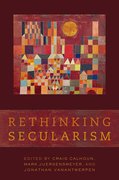The View from Cairo: Dispatch 3
The mood of celebration in Egypt after the resignation of the president is uncontainable. Egyptians know there are unanswered questions and uncertain times ahead, and the country’s woes have not been wiped out overnight, but they have achieved something that a few weeks ago was unthinkable, and they are proud not just of that achievement but of the way they did it: The 25 January Revolution, as it is being called here (from the date of the first protests), has been an incredibly impressive peaceful mass movement (sometimes confronted with sickening violence) of young and old, men and














